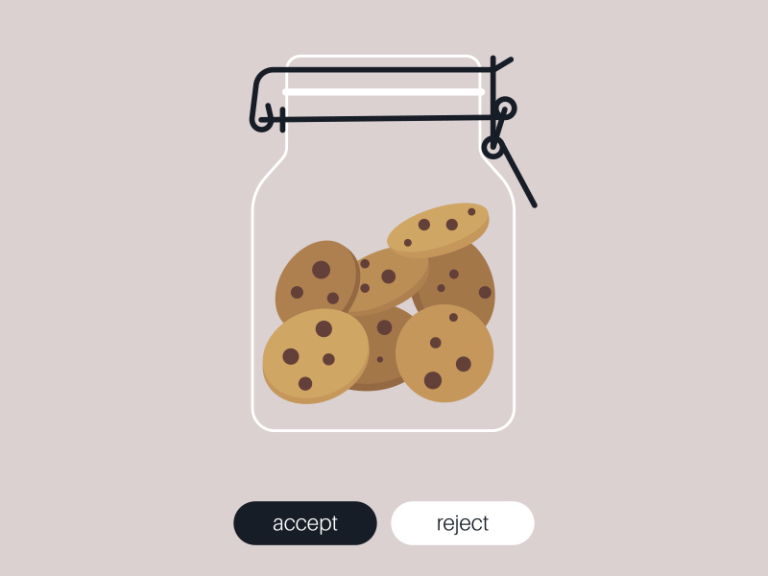
The term "cookies" in the context of the web, officially known as HTTP cookies, is thought to have been derived from the term "magic cookies." This term was used in early computing to describe a packet of data a program receives and sends back unchanged, much like a token. The concept is similar in web cookies, where small pieces of data are sent by a server to a user's web browser and then sent back by the browser each time it accesses that server. These cookies are used for various purposes, such as to authenticate, track, and maintain specific information about users, such as site preferences or the contents of their electronic shopping carts.
The analogy is that, just like a real cookie, they are a small, sweet thing given as a token or for identification, and once you have it, you can present it to get something in return, much like how web cookies work for user authentication and maintaining session states.
Do you need help with your website, contact us here
In the UK, the term "cookie" is widely understood and used when referring to web cookies, despite the fact that "biscuit" is the more common term for the edible treat. This is largely due to the global influence of American English in the field of technology and the internet. Technical terms, especially those related to the internet and computing, often remain consistent globally to avoid confusion.
So, while in a culinary context, a Brit might prefer "biscuit" over "cookie," in the context of the web, the term "cookie" is universally used, including in the UK. This helps maintain a common language in the digital world, making it easier for people worldwide to understand and communicate about these technologies. I know boring right!
The "Cookie Law" refers to a piece of privacy legislation that requires websites to get consent from visitors to store or retrieve any information on a computer, smartphone, or tablet. It started as an EU directive and was adopted by all EU countries, and similar laws have been implemented around the world. The need for such a law arises from several concerns and objectives:
Cookies can be used to track users' browsing habits and history, which raises privacy concerns. The law aims to protect user privacy by ensuring that they are aware of and consent to tracking and data collection activities.
The law enforces the principle of informed consent, meaning that users should have the choice to either accept or reject cookies that are not essential to the basic functioning of the website. This empowers users to protect their personal data.
Websites must provide clear and comprehensive information about how they use cookies. This transparency is crucial in building trust between the website and its users.
Control Over Personal Data: In an era where personal data is a valuable commodity, the Cookie Law gives individuals more control over their personal data. It allows users to opt-out of non-essential cookies, limiting the amount of personal data that can be collected by websites.
The law provides a standardised approach to how cookies should be handled across websites, making it easier for users to understand their privacy rights and for businesses to comply with data protection standards.
The Cookie Law is often part of broader data protection frameworks, like the GDPR in Europe. It helps ensure that businesses are in compliance with these laws, which are designed to safeguard user data against misuse.
By regulating the use of cookies, the law also aims to enhance the security of user data. It requires websites to inform users about what data is being collected and for what purpose, which can also help in identifying and preventing malicious activities.
In summary, the Cookie Law is necessary to protect user privacy, ensure transparency in data collection, give users control over their personal data, and align with broader data protection and privacy laws. It reflects the growing global concern over personal data security and privacy in the digital age.
What do you think of the Cookie Consent Law, do you find it annoying tio have to click something every time you go to a new website, or perhaps you don't mind, if you've found this post on social media comment below, or sign up to the Best of to comment here.
Get more enquiries from your website, check out our SEO Packages
Website designer, website hosting and SEO
The following Cookies are used on this site. Users who allow all the Cookies will enjoy the best experience and all functionality on the site will be available to you.
You can choose to disable any of the Cookies by un-ticking the box below but if you do so your experience with the Site is likely to be diminished.
In order to interact with this site.
To show content from Google Maps.
To show content from YouTube.
To show content from Vimeo.
To share content across multiple platforms.
To view and book events.
To show user avatars and twitter feeds.
To show content from TourMkr.
To interact with Facebook.
To show content from WalkInto.